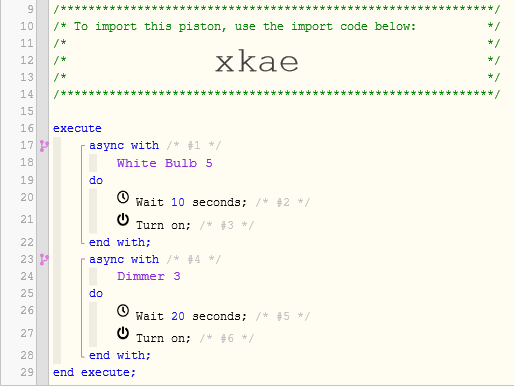1) Give a description of the problem
Multiple timers in one piston firing at same time.
I did some searching and from what I have seen on the forums it seems like multiple timers cannot fire synchronously in one piston. Is that the consensus? To be clear, multiple wait timers counting down to turn off multiple lights. It seems like first timer in wins when activated.
2) What is the expected behavior?
Multiple timers in one piston counting down synchronously
3) What is happening/not happening?
Async set but first timer in wins
4) Post a Green Snapshot of the piston![]()
(UPLOAD YOUR IMAGE HERE)
5) Attach any logs (From ST IDE and by turning logging level to Full)
(PASTE YOUR LOGS HERE BETWEEN THE MARKS THEN HIGHLIGHT ALL OF THE LOGS SND CLICK ON THE </> ICON TO FORMAT THEM)
REMOVE BELOW AFTER READING
If a solution is found for your question then please mark the post as the solution.




